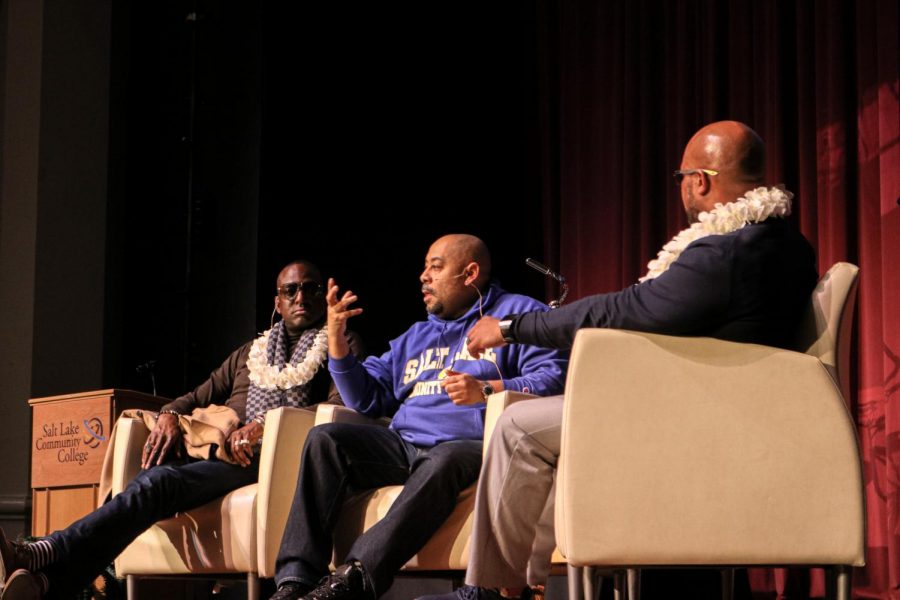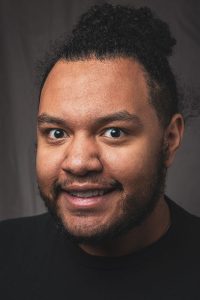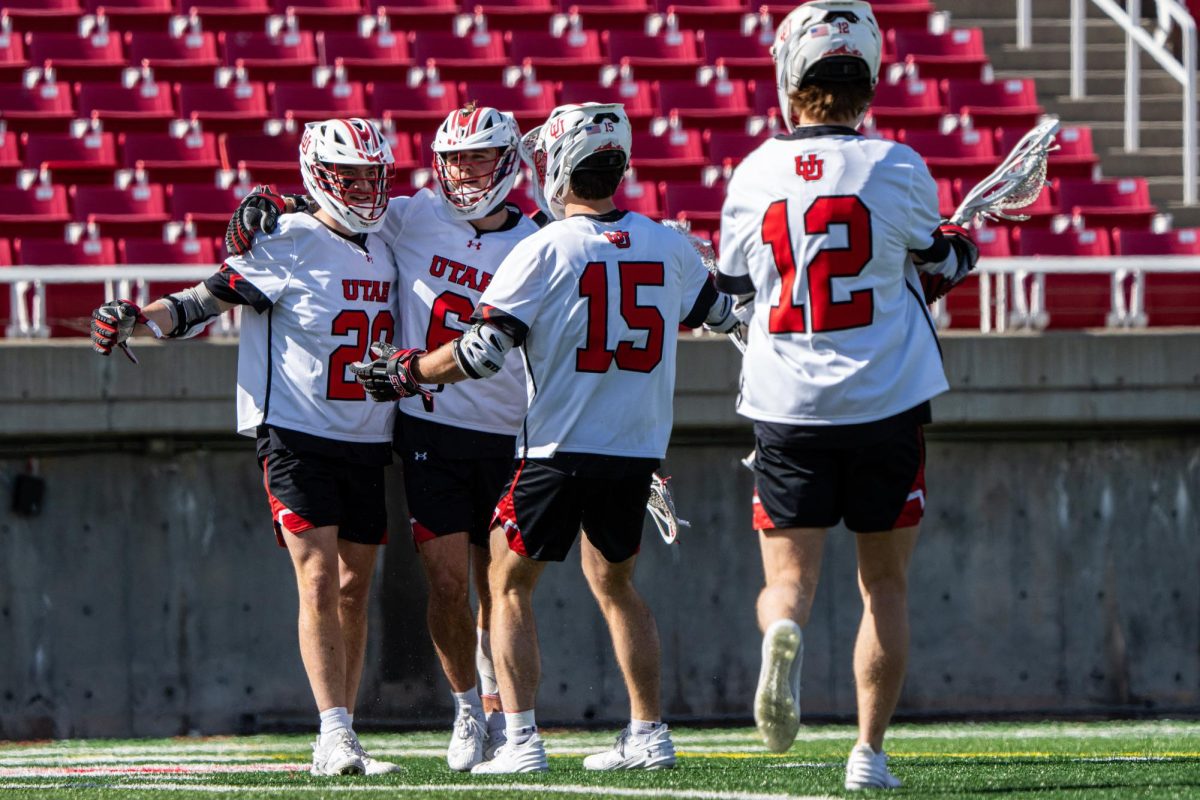The Impact of Story: Dr. Yusef Salaam and Raymond Santana Speak to Salt Lake City Crowd
Two of the members of the “Exonerated Five,” Yusef Salaam and Raymond Santana speak at the Grand Theatre for Salt Lake Community College’s 2020 Martin Luther King, Jr. Commemorative Keynote on Feb. 18 in Salt Lake City. (Photo by Ivana Martinez | Daily Utah Chronicle)
February 19, 2020
On Feb. 18, people circled around the Grand Theatre at Salt Lake Community College in anticipation, waiting to hear Dr. Yusef Salaam and Raymond Santana speak at the 2020 Martin Luther King, Jr. Commemorative Keynote.
In April 1989, a woman was attacked and raped while jogging in Central Park. In the days that ensued, five innocent boys, including Salaam and Santana, were coerced into a false confession by police officers and became known as the infamous “Central Park Five.”
After being exonerated in 2002 for the wrongful conviction of the brutal sexual assault of the young woman, Salaam and Santana have spent their lives working to inform the public on criminal justice reform.
The two men of the “Exonerated Five” spoke to a sold out auditorium about criminal justice reform and their experience of life after incarceration.
The Disguise
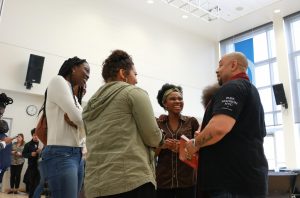
The day-long event was organized by the Black Student Union and the Utah Criminology Student Association.
Santana spent the day with students talking about their own personal experiences with racial issues in Utah. Salt Lake Community College student Ryiah Murchison spoke at a luncheon where students met Santana.
“There was one time they did blackface for an assembly,” Murchison said about her school. She went on to talk about how she even almost got suspended at that assembly for taking action.
Murchison mentioned another incident when she was running for homecoming queen, and was told by a member of the board of education at the time that she wasn’t going to win because “she was black.”
Santana continued the conversation, asking if there was unity between different races in Utah. After more student input, he told students that racism isn’t as blatant as it used to be. It has masked itself in different forms. Michelle Alexander touches on this in her book “The New Jim Crow,” identifying mass incarceration as a system of operation based on race.
“The system has become very strategic. The system plays chess. It doesn’t play checkers,” Santana said.
According to data from the Institute of Crime and Justice Policy, the United States remains one of the countries with the highest mass incarceration rates. While racial disparities have been shrinking in American prisons, people of color are still disproportionately imprisoned. Black people comprise 12% of the adult population in the U.S. but represent 33% of the prison population.
The Loss of Innocence
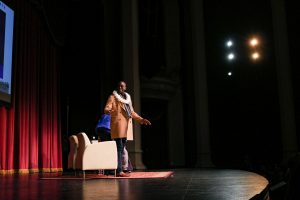
Salaam, who was 15-years-old at the time of the conviction, spoke about his loss of innocence during and after the trial.
“It is tantamount to going to sleep every day — wanting the American dream and waking up to the American nightmare,” Salaam said. He said that his mother had tried to give him a parallel education that he hadn’t yet experienced.
Salaam talked about the American justice system and its role in mass incarnation of people of color. “We’ve been walking around saying something wrong. The system is broken. The system is alive and well,” he said.
“Then we found out that the system is actually not broken,” Salaam said. “That the system is working exactly as it was designed.”
Salaam and Santana spoke about how their life changed after the release of the Netflix limited series “When They See Us,” which dramatized the lives of the Central Park Five.
“It had changes in a more positive way. It has given us more opportunities to go out and speak to young people giving the message,” Santana said.
Santana mentioned that we, as a people, need to stray away from the mindset that one individual’s idea is better than others, and instead, we should bring those ideas collectively and combine them to solve the problem.
That mindset is “what destroys the solution, when we start fighting amongst each other,” he said. “We have to work on both solutions.”
Salaam and Santana were met with a standing ovation at the end of their keynote.
i.martinez@dailyutahchronicle.com


